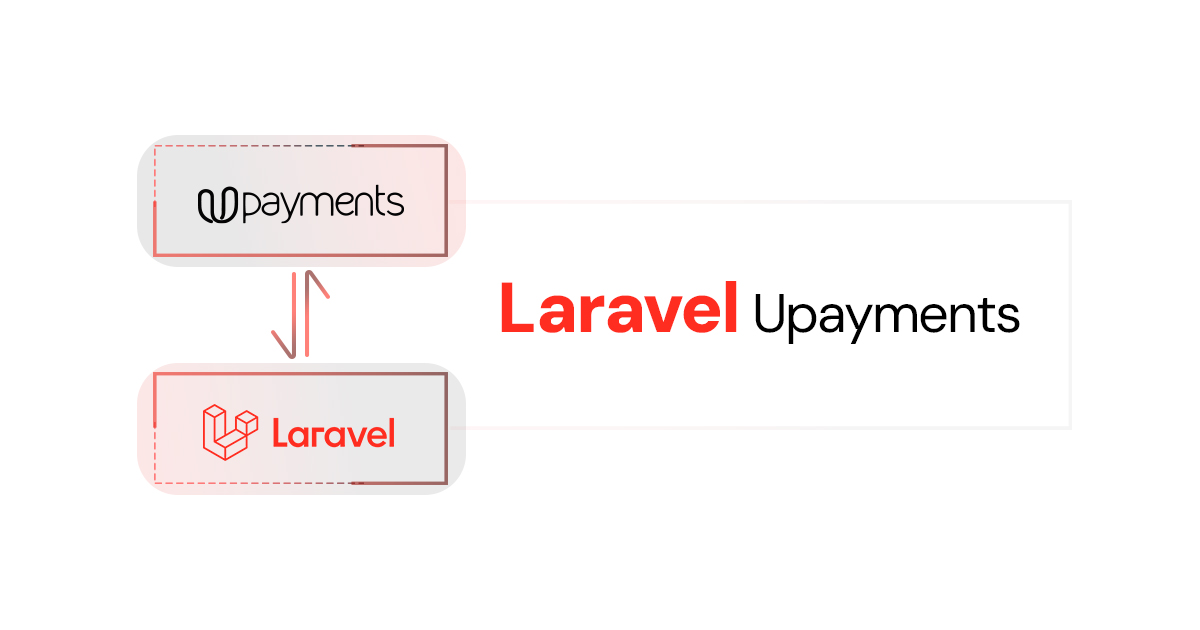osa-eg / laravel-upayments
A Laravel package for integrating Upayments gateway.
Installs: 106
Dependents: 0
Suggesters: 0
Security: 0
Stars: 3
Watchers: 1
Forks: 1
Open Issues: 0
pkg:composer/osa-eg/laravel-upayments
Requires
- php: ^7.4|^8.0|^8.1|^8.2|^8.3
- guzzlehttp/guzzle: ^7.0
- illuminate/support: ^8.0|^9.0|^10.0|^11|^12
Requires (Dev)
- phpunit/phpunit: ^11.4
README
A Laravel package for integrating the Upayment payment gateway. It provides a convenient way to interact with the Upayment API, allowing you to create payments, refunds, manage cards, and more.
Installation
-
Require the package using Composer:
Run the following command in your terminal:
composer require osa-eg/laravel-upayments
-
Publish the configuration file:
php artisan vendor:publish --provider="Osama\Upayments\Providers\UpaymentsServiceProvider" --tag="config"
-
Configure your environment:
Update your
.envfile with the following:UPAYMENTS_API_KEY=your_upayments_api_key UPAYMENTS_API_URL=https://sandboxapi.upayments.com/api/v1 UPAYMENTS_LOGGING_CHANNEL=stack UPAYMENTS_LOGGING_ENABLED=true
Configuration
After publishing, the configuration file config/upayments.php will be created. You can modify it according to your needs.
<?php return [ 'api_key' => env('UPAYMENTS_API_KEY', ''), // Your Upayments API key 'api_base_url' => env('UPAYMENTS_API_URL', 'https://sandboxapi.upayments.com'), 'logging_channel' => env('UPAYMENTS_LOGGING_CHANNEL', 'stack'), 'logging_enabled' => env('UPAYMENTS_LOGGING_ENABLED', true), ];
Configuration Options
api_key: Your Upayments API key.api_base_url: The base URL for the Upayments API. Use the sandbox URL for testing.logging_channel: Specifies the logging channel to be used for logging requests and responses. Default is'stack'.logging_enabled: Enables or disables logging. Set totrueto enable logging orfalseto disable it.
Logging
The package includes logging functionality to help you debug and monitor API requests and responses.
Enabling/DisablingLogging: You can enable or disable logging by setting the UPAYMENTS_LOGGING_ENABLED value in your .env file to true or false.ging Channel: Specify the logging channel in your .env file using UPAYMENTS_LOGGING_CHANNEL. This should correspond to a channel defined in your config/logging.php file.
Example Logging Configuration
In your .env file:
UPAYMENTS_LOGGING_CHANNEL=upayments UPAYMENTS_LOGGING_ENABLED=true
In your config/logging.php:
'channels' => [ // Other channels... 'upayments' => [ 'driver' => 'single', 'path' => storage_path('logs/upayments.log'), 'level' => 'info', ], ],
Usage
Basic Usage
-
Add a product and create a payment:
use Upayment; $response = Upayments::addProduct('Test Product', 'Description', 100.0, 1) ->setOrder([ 'id' => 'ORD123', 'reference' => 'REF123', 'description' => 'Order Description', 'currency' => 'USD', 'amount' => 100.0, ]) ->setCustomer([ 'uniqueId' => 'CUST123', 'name' => 'John Doe', 'email' => 'john.doe@example.com', 'mobile' => '+1234567890', ]) ->setPaymentGateway('knet') ->setReturnUrl('https://example.com/return') ->setCancelUrl('https://example.com/cancel') ->setNotificationUrl('https://example.com/notify') ->setReference('REF123') ->setLanguage('en') ->markAsWhiteLabeled() // or markAsNonWhiteLabeled() ->createPayment(); if ($response['status']) { echo "Payment link: " . $response['data']['link']; } else { echo "Error: " . $response['error']['message']; }
-
Retrieve payment status:
$response = Upayments::getPaymentStatus('ORD123', 'trackId');
-
Create a refund:
$response = Upayments::createRefund('ORD123', 50.0, [ 'customerFirstName' => 'John', 'customerEmail' => 'john.doe@example.com', 'reference' => 'REF12345', 'notifyUrl' => 'https://example.com/refund-notify' ]);
-
Multi-vendor refund:
$response = Upayments::addRefundVendor([ 'refundRequestId' => 'REF123', 'ibanNumber' => 'KW91KFHO0000000000051010173254', 'totalPaid' => '100.0', 'refundedAmount' => 0.0, 'remainingLimit' => 100.0, 'amountToRefund' => 10.0, 'merchantType' => 'vendor' ]) ->addRefundVendor([ 'refundRequestId' => 'REF124', 'ibanNumber' => 'KW31NBOK0000000000002010177457', 'totalPaid' => '200.0', 'refundedAmount' => 0.0, 'remainingLimit' => 200.0, 'amountToRefund' => 20.0, 'merchantType' => 'vendor' ]) ->createMultiVendorRefund('ORD123', [ 'reference' => 'REF12345', 'notifyUrl' => 'https://example.com/multi-refund-notify' ]);
Available Methods
Payment Methods
addProduct($name, $description, $price, $quantity)setOrder($orderData)setCustomer($customerData)setPaymentGateway($source)setReturnUrl($url)setCancelUrl($url)setNotificationUrl($url)setNotificationType()//in case setPaymentGateway('create-invoice')markAsWhiteLabeled()markAsNoneWhiteLabeled()createPayment()setLanguage()getPaymentStatus($id, $type = 'invoiceId')checkPaymentButtonStatus()
Refund Methods
createRefund($orderId, $totalPrice, array $optionalParams = [])getRefundStatus($orderId)checkSingleRefundStatus($orderId)deleteRefund($orderId, $refundOrderId)
Multi-Vendor Methods
addRefundVendor(array $vendorData)createMultiVendorRefund($orderId, array $optionalParams = [])deleteMultiVendorRefund($generatedInvoiceId, $orderId, $refundOrderId, $refundArn)
Card Management Methods
createCustomerUniqueToken($customerUniqueToken)addCard($returnUrl, $customerUniqueToken)retrieveCustomerCards($customerUniqueToken)
Middleware Support
The package includes retry and logging middleware to handle request retries and log requests for debugging purposes.
Unit Tests
To run the tests, use the following command:
vendor/bin/phpunit
Contributing
Feel free to submit issues or pull requests for improvements and bug fixes.
License
The Laravel Upayment Integration package is open-sourced software licensed under the MIT license.
This `README.md` provides comprehensive documentation on how to use the package, including installation, configuration, usage examples, and available methods. It serves as a guide for integrating and utilizing the Laravel Upayment Integration package effectively.

